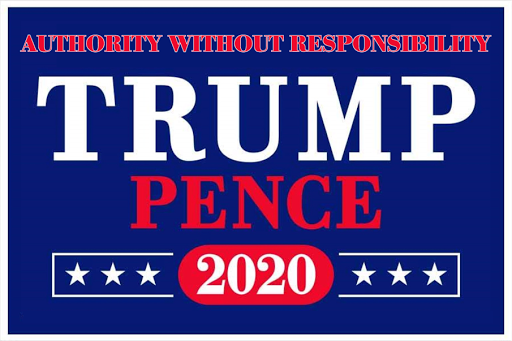Opinion writers for The New York Times have been commenting daily on the just-ended party conventions. Each writer has offered opinions on the best and worst moments of the four-day presentations. Mostly, the commentary was unremarkable; I agreed with much of it and could usually sympathize with the rest. But the evaluation of the final day of the Republican convention upset me. Well, one remark upset me.
Matt Labash, writing in the “What Else Mattered” section of the Times piece, offered the following:
The R.N.C. was as dispiriting as the D.N.C. At a time of multiple crises, when we most need good, honest leadership, we instead get relentless dishonesty. Democrats lie about “peaceful protests,” as cities are torched and ransacked. Republicans lie about Covid-19, a virus we didn’t even know existed 10 months ago, but which is now our third-leading killer, having taken nearly 185,000 American lives. These are the choices, folks: bunco men vs. flim-flammers. Bloods vs. Crips, engaged in gang warfare for its own sake. I, for one, will be voting my conscience, which dictates that I can’t vote. Not this cycle. Why reward the bastards?
Labash’s other remarks were not flattering either. I haven’t bothered to look up what he said about the DNC, but from what he wrote following the last day of the RNC, I assume it wasn’t positive. What upset me, though, was how he ended the above paragraph:
I, for one, will be voting my conscience, which dictates that I can’t vote. Not this cycle. Why reward the bastards?
This brought to mind something Katy Tur once said on MSNBC. Tur had been tasked by her network to cover the Donald Trump candidacy in the 2016 campaign. That hardly seemed a plum assignment at the time, but, as it turned out, she got to follow the man who would become the next President of the United States. Tur was able to observe the Republican standard-bearer, as they say, up close and personal. Additionally, Trump occasionally singled her out by name as a representative of the fake-news press.
What Katy Tur said after the election was that she hadn’t voted. Apparently, this was out of some perverted notion of journalistic objectivity. I thought that she, of all people, was in the perfect position to see Donald Trump as the lying hate-monger he is. As a well-educated professional woman, could she not see that Trump was a danger to the Republic and that it was her civic duty to vote for Hillary Clinton? Well, apparently not. Journalistic objectivity was no excuse for her behavior.
Matt Labash, on the other hand, offers a different, even weaker, excuse for not bothering to vote. He is practicing bothsidesism. Seeing hypocrisy in the presentations of both the Democrats and the Republicans, he concludes, in effect, that the two parties are equally corrupt and not deserving of his vote. He claims a moral superiority in this position. In reality, though, his position is like that of Trump himself when he spoke of good people on both sides of the Charlottesville demonstrations. If Labash cannot see a world of difference between the Republican and Democratic candidates this year, he is too clueless to be writing opinions in the Times. In fact, if he is indeed that oblivious to the obvious, perhaps it is best that he not vote!
I am impressed neither by Tur’s reasoning nor Labash’s. I should also mention a line of reasoning similar to Labash’s that is also dangerous to our democracy. Some voters take the pox-on-both-your-houses position and vote for a third-party candidate or write in the name of some non-candidate. This is yet another way of shirking one’s responsibility as a citizen. When neither of two candidates in an election meets one’s standards, the responsible action is to vote for the better of the candidates. Not voting for the lesser of two evils risks electing the greater of the two evils.
Let me illustrate how my reasoning works in practice. In an election between Donald Trump and Jack-the-Ripper, one has a moral obligation to vote and to vote for Jack.













